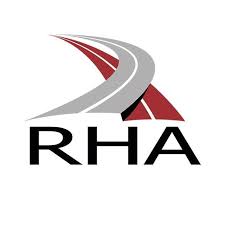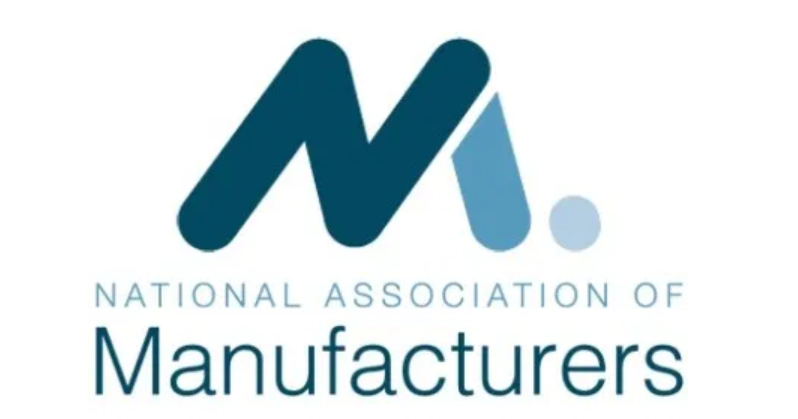Road Haulage Association
Category: Trade Association
The Road Haulage Association (RHA) is the UK’s principal trade association for haulage companies, representing “the legitimate interests of its members to government, to the industry and its customers, and to society as a whole”, according to its website.
The RHA has been strongly opposed to increases in fuel duty and criticised the introduction of Clean Air Zones (CAZ) in cities across the UK. It has played an active role in lobbying local authorities on the issue, arguing that CAZs are ineffective and putting hauliers out of business.
The RHA has also vocally opposed the introduction of low traffic neighbourhoods (LTNs) and new cycle lanes, which were implemented as part of the government’s response to the COVID-19 pandemic.
The organisation provides a range of services to its more than 7,000 member companies, who operate over 250,000 vehicles, including audits, risk assessments, contracts of employment and training courses.
The Managing Director of Transport at DHL Supply Chain UK & Ireland sits on the RHA‘s board of directors, and XPO Logistics, Freightlink Europe and Wincanton also confirmed to DeSmog they were members.
The RHA publishes the magazine Roadway and runs an app called RoadwayLive to keep users up-to-date on industry news and the status of major roads.
According to its latest available report submitted under trade union legislation, it reached over 2 million readers and listeners through media appearances, a large increase on the previous year.
The RHA has a well-resourced lobbying team in Westminster, which it says “has had significant influence in the policies and actions of government and its agencies, including major wins for the industry”.
The organisation is currently leading a mass legal action against European HGV manufacturers involved in price-fixing, seeking compensation for companies and individuals who leased a truck from 1997-2011.
The RHA has run a number of successful campaigns over the years. It lobbied for the speed limit for HGVs to be increased from 40 to 50mph and called for a levy to be imposed on foreign HGV operators using UK roads as a way of levelling the playing field with UK hauliers, who are required to pay road tolls in mainland Europe.
Along with the Freight Transport Association, it is also a “founding backer” and funder of the anti-fuel duty Fair Fuel UK campaign. The RHA’s Chief Executive, Richard Burnett, spoke at the 2018 parliamentary reception of the All-Party Parliamentary Group on Fair Fuel for UK Motorists and UK Hauliers, administered by the campaign group. In March 2020 its Policy Director thanked FairFuel for keeping the issue on the political agenda, shortly before the government announced a freeze on fuel duty for the tenth successive year.
The RHA jointly owns The Commercial Vehicle Show LLP company, which runs the annual Commercial Vehicle Show, with the Society of Motor Manufacturers and Traders.
Road Freight and Logistics APPG
As part of its lobbying efforts, the RHA runs the All-Party Parliamentary Group (APPG) on Road Freight and Logistics, chaired by former Roads Minister Sir Mike Penning. Its officers include fellow Conservative MPs Sir Peter Bottomley and Darren Henry, Labour MPs Charlotte Nichols and Tonia Antoniazzi, and the SNP MP Gavin Newlands.
In February 2020, the APPG launched an inquiry into “problems” the industry is facing from CAZs being implemented in UK cities such as Birmingham and Leeds.
Penning has been a strong supporter of the industry and previously asked parliamentary questions about the possibility of introducing a rebate on fuel duty to the road freight industry.
The APPG is administered by Tendo Consulting, a PR company whose clients have included the industry-backed campaign A Fair Tax on Flying, which advocates cutting air passenger duty by 50 percent “at least”. Tendo also administers an APPG on the issue.
The British Vehicle Rental and Leasing Association, which represents companies involved in vehicle rental, leasing and fleet management, is also listed among Tendo’s “current and recent clients”. Both the BVRLA and the RHA are part of a coalition strongly critical of Clean Air Zones, as detailed below.
Funding
The RHA had £12m of revenue in 2018, according to its annual report, with a third coming from its 7,000+ members and the remainder from unspecified “Other Income”.
The organisation’s 2020 conference was due to be sponsored by the tyre manufacturer, Michelin.
Air Pollution Lobbying
According to its website, the RHA “agrees that some action should be taken to discourage inappropriate use of diesel as a fuel, in particular in urban areas” and says it makes sense to “re-consider some of the incentives” that encourage the purchase of new private diesel vehicles. It has said it is “fully committed to safer, cleaner diesel vehicles” and spoken of the “need to bring down harmful Nitrogen Oxide (NOx) emissions”.
Clean Air Zones
However, the organisation has also opposed the introduction of CAZs, which its Chief Executive listed in 2018 as one of the five major challenges facing the industry.
In March 2020, it described current CAZ policies as “expensive, inflexible and ineffective” and requiring reform “as a matter of urgency”. It claimed the policy was seeing “hard-working and long-established firms go out-of-business”. The organisation’s Policy Director Duncan Buchanan has also called them an “anti business tax grab”.
In its “2020 Budget Submission”, it argued that the sector’s investment in the latest “Euro VI” lorries, which it calls “Ultra Low Emission”, had “reduced NOx from lorries by around 60%”.
The RHA said that CAZs had become a “case study in how not to drive change in a sustainable way” because of its “demands on local authorities” and the “discriminatory targeting” of sectors such as road haulage.
The document also claimed that the policy is causing a “cliff-edge” in the resale values of older vehicles, arguing that it should “respect the natural lifecycles” of HGVs. It further argues that charges imposed on older models should be phased in gradually between 2020 and 2024 in order to stabilise resale values and incentivise the use of newer, cleaner models.
In its 2018 annual report, the RHA claimed that it was a “major influencer” in Southampton’s decision to abandon a charging CAZ.
“Vigorous campaigning by the RHA has produced some success: Southampton has scrapped plans to charge lorries – as have Derby and Nottingham – Cardiff is undecided and in Scotland our efforts have moved Holyrood to shelve plans to charge,” it noted.
The RHA has also recommended that local authorities should consider charging only the oldest, dirtiest HGVs and impose lower charges for medium-age models.
In another policy statement, the RHA claims that the sector’s “environmental performance has been transformed” in recent years and that “modern lorries are efficient and quiet”.
Elsewhere, the RHA’s Chief Executive argues that the current CAZ policy is “counterproductive” because it will divert freight from lorries onto smaller vans, leading to an overall rise in congestion and emissions. He also claims HGVs and buses account for “just 5% of NOx emissions” and that there should therefore be a “more proportionate response”.
Reacting to the government’s proposed 2035 ban on new of petrol and diesel cars and vans, announced in February 2020, the RHA tweeted that there was “a very long way to go before an efficient, cost-effective alternative to diesel-powered trucks can be found”.
Chris Ashley, RHA’s Head of Policy on the Environment and Regulation, told DeSmog the organisation “absolutely supports the aim to improve air quality” but said “faulty” policies had “distorted vehicle replacement cycles”. He called on the government to “re-design and phase-in CAZ standards” so that the industry could play its part in “promoting a sustainable, healthy environment that supports jobs and growth”.
An RHA spokesperson added that the industry had been left feeling “attacked”, with the second-hand value of their vehicles disappearing and a “patchwork” of different schemes creating further difficulties.
Low Traffic Neighbourhoods
The RHA has voiced opposition to emergency active travel measures – including low traffic neighbourhoods (LTNs), wider pavements and pop-up cycle lanes – introduced by the government in 2020 to increase socially-distanced travel in response to the COVID-19 pandemic.
In March 2021, the RHA’s Policy Director Duncan Buchanan tweeted that the roads in a recently cancelled low traffic neighbourhood in London “have not been awash with vehicles” and that the LTN was the “wrong solution that is more about privatising public assets & raising tax”.
In November 2020 the RHA, Fair Fuel UK, Alliance for British Drivers (ABD), and the APPG on Fair Fuel for UK Motorists and Hauliers wrote to Secretary Grant Shapps criticising what it referred to as the “uncalled-for war on the motorist”. The groups called on Shapps to stop the roll-out of LTNs and withdraw “the plethora of new road narrowing, blockades and dedicated cycle lanes” introduced during the pandemic, as well as to cancel a planned extension of London’s Congestion Charge Zone.
Commenting on the letter, RHA Chief Executive Richard Burnett said: “We consider that DfT’s £42m investment in ‘green’ road schemes that include additional cycle lanes and road closures to be very poorly timed”. Burnett added that the schemes were causing “additional congestion” and showed “absolutely no consideration for the sector responsible for keeping store shelves full and maintaining the drugs and PPE that hospitals so desperately need to save lives”.
In August 2020, Buchanan tweeted that “LTN’s = Ludicrous Traffic Neighbourhoods” and that the schemes “damage economic, social & environmental well-being”.
Freight Industry Coalition
The RHA belongs to a coalition of trade bodies representing the road transport sector that has strongly criticised charging CAZs and wants to see non-charging alternatives implemented instead. Other members include the Freight Transport Association, the British Vehicle Rental & Leasing Association and the National Franchised Dealers Association.
In 2018, the coalition published a plan entitled “The Way Forward” setting out alternative measures to CAZs, such as smarter traffic management. It argued CAZs were unfairly targeting HGV operators and met with Transport Minister Jesse Norman and Environment Minister Therese Coffey to discuss the recommendations.
The coalition has also published a “factsheet” arguing that there are currently no viable alternatives to diesel for HGVs and that small and medium sized businesses would be worst affected by CAZs. It also criticised the charging system for not distinguishing between different types of older diesel lorries.
The factsheet said that lorries were being “asked to bear the greatest burden in reducing emissions”, despite not being the only source of NOx, and that the charges would “result in a tax on freight, a tax on business and higher prices for everyone”.
Fuel Duty
The RHA argues that fuel duty is “not the appropriate tool to drive long-term change”, which it says harms UK competitiveness and should be reduced. It instead advocates tackling congestion, reforming “traffic control measures” and encouraging the use of non-diesel vehicles as “viable and effective approaches”.
It also recommends “encouraging” petrol hybrid cars, electric cars and the “use of these technologies in taxi and bus fleets”.
Ahead of the 2020 Budget, its top demand of the Treasury was a rebate of 15p per litre of fuel for the road haulage industry, “which would effectively cut fuel duty to German levels”, it said.
The RHA’s Managing Director of Policy & Public Affairs Rod McKenzie also criticised government plans to cut subsidies for “red diesel”, used in heavy machinery, saying it would “add £100m to the cost of delivering food to supermarkets”.
It has also previously claimed that a 3p cut in fuel duty would lead to a £1 billion boost to the economy and 8,000 more jobs, based on a 2016 report by the Centre for Economics and Business Research (CEBR), commissioned for the Fair Fuel UK campaign group, of which the RHA is a founding backer. CEBR describes itself as an independent economics consultancy, though its founder and deputy chairman Douglas McWilliams congratulated Fair Fuel in March 2020 on helping to keep fuel duty frozen.
Key Arguments in Order of Prominence
- CAZs are a blunt tool, imposing the same charge on all older, non-compliant lorries and damaging the resale value of medium-age models
- The road haulage industry has already reduced NOx emissions considerably and modern lorries are “efficient and quiet”
- Clean air targets will be met by 2024 without charges
- CAZs are being implemented too suddenly and should be phased in over a number of years, in line with HGVs’ “natural lifecycles”
- Other, non-charging, measures such as encouraging the uptake of cleaner vehicles can be more effective
- CAZs are counter-productive because they cause an increase in van usage, reversing the environmental benefits
- CAZs will have knock-on effects, increasing costs for consumers in shops
- Hauliers are being unfairly targeted – HGVs and buses only cause 5% of NOx emissions
- CAZs place too many demands on local authorities, and their operating cost can exceed the income generated
Areas Active
The RHA is a vocal opponent of clean air zones across the UK and has responded to many of the consultations launched by cities considering the policy, as well as calling on its own members to do the same.
In its 2018 report, it listed one of its successes as “lobbying representatives from local authorities to express our views on clean air zone policies to ensure that realistic emissions standards are being set and that the financial implications for the road freight industry are considered as well as the overall economy”.
Bath: the RHA has claimed a charging clean air zone would “jeopardise businesses” and that haulage companies are being “unfairly targeted”. The RHA’s Chief Executive told Yahoo News that tackling air pollution could not come “at the expense of businesses priming the supply chain”.
It also wrote a joint letter to the council opposing the plans with Fair Fuel UK, the motoring pressure group the Alliance of British Drivers and the free-market TaxPayers’ Alliance. The letter argued a CAZ could cause a decline in tourism, increase costs for taxis, coach companies and hauliers, leading to job losses and businesses “going bust”. It also stated that CAZs had been “shown to be ineffective, economically damaging and regressive” and suggested a tram system could be a better solution to tackling air pollution.
Birmingham: the RHA has said a Birmingham CAZ “will cause real issues for haulage firms and other businesses in and around the area”. The RHA’s Head of Policy on the Environment and Regulation has spoken to the Greater Birmingham Chamber of Commerce about the need for “urgent reform”.
Bradford: the RHA has criticised plans for a CAZ, calling the policy “inflexible and unfair”. Ashley said hauliers were being “disproportionately” targeted despite having reduced NOx emissions by 60% since 2013. In February 2020, it called on its members to respond to the ongoing consultation.
Bristol: in response to a consultation on the city’s planned CAZ, the RHA argued the proposals would cause a significant increase in the use of vans. It said “blanket charging” of pre-Euro VI lorries would “not do the best for air quality”.
The statement also claimed that: “Many local authorities have concluded that the operating cost of a charging clean air zone can [be] higher than the income generated”.
Coventry: the RHA welcomed the cancellation of plans for a charging CAZ in February 2020, saying it was a “victory for common sense”. The RHA’s Chief Executive said government ministers, who approved the council’s plans, had “made the right choice backing moves to improve air quality which avoid charging road users”.
Humberside: the RHA’s area manager for Humberside Mike Wales said during an interview about CAZs that “it is generally felt in the industry that this is just another tax”. He went on to argue: “Figures indicate that targets would be met in line with the ClientEarth case by 2024 without these charges put in place”.
Leeds: Lesley O’Brien of the company Freightlink and the RHA expressed concern about a proposed CAZ in a BBC interview, saying: “a lot of operators I know are having to totally replace their fleet and what it’s meaning to a lot of them is they’re actually considering: ‘should I continue in business?’”
London: the RHA’s Chief Executive told ITV’s Good Morning Britain that the city’s Ultra Low Emissions Zone (ULEZ) would cause £26,000 of potential charges annually per HGV, which would “put businesses out of business”. In its response to the ULEZ consultation, it said that the “charging levels will be catastrophic” and argued an increase in van usage would increase congestion. It said the sector needed “more time to react due to the financial demand of upgrading vehicles” because there were “no viable retrofit options”.
On low traffic neighbourhoods (LTNs), the RHA’s Policy Director tweeted that a recently-cancelled low traffic neighbourhood in Croydon had been the “wrong solution” for improving air quality and traffic in the area and had been “more about privatising public assets & raising tax”.
Oxford: the RHA has called plans for a Zero Emission Zone “absurd” and “just another tax on businesses dressed up as concern for the environment”. The RHA’s Head of Policy on the Environment and Regulation was interviewed by ITV News about the scheme and said: “they put us in an impossible position, because there are no zero emission lorries in existence at the moment, so how can we comply?” He said the RHA saw the plans as a “tax on local business leading to price rises in the shops”.
Reading: the RHA has opposed a planned charge for “through traffic” that uses the city as a short-cut, arguing that “adding extra miles to truck journeys would increase costs and make local firms who rely on these routes less competitive”.
Scotland: the RHA has called for a slower, “phased” approach to the country’s proposed Low Emission Zones, arguing that sudden charging would hit “nearly half the UK fleet of HGVs”.
In a consultation response, it said it recognised poor air quality was a “serious environmental risk to public health” but argued that clean air policy should support the 12-year “investment lifecycle” of hauliers. It also claimed there was a market shortage of second hand Euro VI lorries, the only models compliant with CAZs.
Wales: responding to the launch of an inquiry into air quality by Wales’s national assembly, the RHA urged the Welsh government not to repeat “disastrous mistakes” made in England. As an alternative to charging zones, the RHA advocated “offering training courses on eco-driving, enforcing anti-idling measures, optimising traffic flow, and designing effective smart car-sharing schemes”.
Key Actions
November 2020
The RHA, alongside the APPG for Fair Fuel for UK Motorists and Hauliers, the ABD, and Fair Fuel UK, wrote a letter to Secretary of State for Transport Grant Shapps calling on him to halt the roll-out of low traffic measures designed to promote active travel during the COVID-19 pandemic and a planned expansion of London’s Congestion Charge Zone to the North and South Circular roads.
February 2020
The RHA made a submission to the Treasury ahead of the 2020 Budget outlining its demands, including a 15p rebate on fuel duty for hauliers, and explaining its opposition to CAZs.
January 13, 2020
The RHA’s Head of Policy on the Environment and Regulation was interviewed by ITV News about a proposal for a Zero Emission Zone in Oxford, calling it “absurd”.
December 17, 2019
The RHA’s area manager for Humberside, Mike Wales, was interviewed about clean air zones on BBC Radio Humberside.
June 18, 2019
Lesley O’Brien of Freightlink and the RHA was interviewed about a proposed CAZ in Leeds by BBC Look North.
April 8, 2019
The RHA’s Chief Executive was interviewed on ITV’s Good Morning Britain about London’s recently introduced Ultra Low Emissions Zone.
Associated Politicians
Conservative
Labour
Scottish National Party
Independent
Crossbench
Related Organisations
- Fair Fuel UK
- Freight Transport Association
- British Vehicle Rental and Leasing Association
- National Franchised Dealers Association
- Society of Motor Manufacturers and Traders
- Alliance of British Drivers
- TaxPayers’ Alliance
Social Media
- @RHANews on Twitter.
The Road Haulage Association on Facebook.





